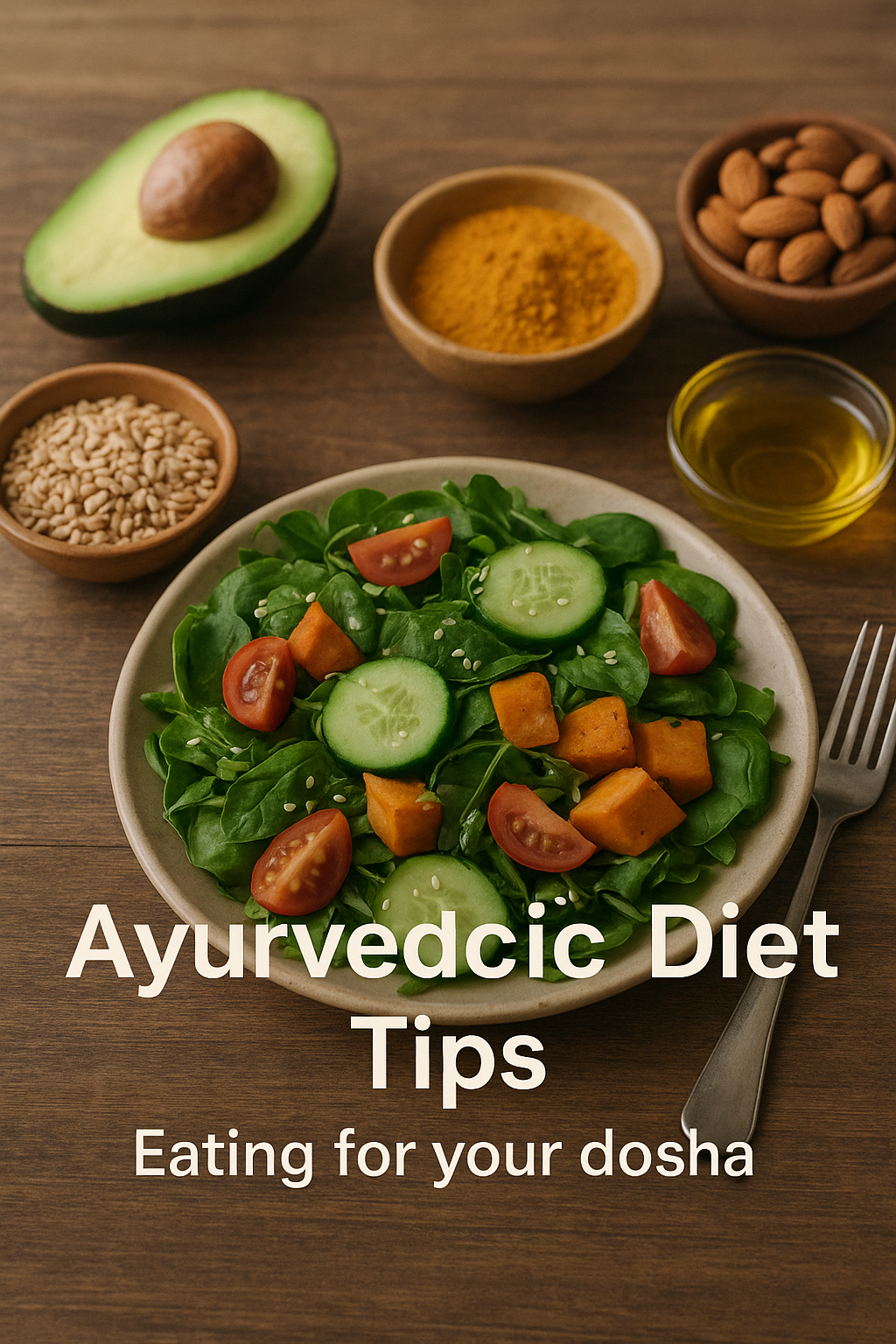
In Ayurveda, food does more than nourish your body: it also shapes your energy, emotional balance, and mental clarity. These Ayurvedic diet tips can guide you toward eating in harmony with your unique constitution, known as your dosha. Each person carries a different combination of Vata, Pitta, and Kapha, and learning to balance them through diet is key for health and wellbeing.
Most people are not a single, pure dosha. Instead, we usually carry a combination of Vata, Pitta, and Kapha in different percentages. On top of that, the body can fall out of balance and show symptoms that don’t necessarily match your original constitution. This is why a truly personalized nutrition plan needs to consider both your constitution (prakriti) and your current imbalance (vikriti).
Life stages and ayurvedic diet
Ayurveda also teaches that nutrition changes with age:
- Childhood and adolescence belong to the Kapha stage, when growth requires nourishment and strength.
- Adulthood is the Pitta stage, dominated by energy, action, and transformation.
- Old age is a Vata stage, marked by dryness, fragility, and quick changes.
This means that even if your constitution is Vata, your diet must also adapt to the phase of life you are in.
The influence of the seasons
Your environment also matters. In winter, cold and dryness increase Vata; in summer, intense heat aggravates Pitta; and in spring, humidity builds up Kapha. Adjusting your diet to the season helps your body stay in natural balance.
Ayurvedic diet tips for each dosha
Vata: air and movement
When Vata (air + ether) predominates, energy feels light, dry, and changeable. It brings creativity and vitality, but when aggravated, it may cause anxiety, insomnia, irregular digestion, and a constant feeling of cold.
Diet Tips:
- Choose warm, soft, and nourishing meals.
- Avoid too many raw or cold foods like salads.
- Favor soups, stews, and warming spices (cinnamon, ginger, cardamom).
- Add healthy oils (sesame, ghee, avocado) for grounding and stability.
Pitta: the transforming fire
Pitta (fire + water) is linked to digestion, intensity, and determination. In balance, it gives discipline and clarity. In excess, it leads to irritability, acidity, and inflammation.
Diet Tips:
- Favor cooling and refreshing foods: cucumber, melon, mint.
- Avoid excess spicy foods, coffee, and alcohol.
- Choose grains like rice and oats, paired with leafy greens.
- Stay hydrated with fresh water and calming herbal teas.
Kapha: stability and earth
Kapha (earth + water) brings strength, calm, and endurance. When out of balance, it may cause sluggishness, weight gain, congestion, and emotional attachments.
Diet Tips:
- Opt for light, warm, and spicy meals.
- Limit dairy and heavy, oily, or overly sweet foods.
- Emphasize bitter and astringent vegetables like broccoli, kale, and radishes.
- Stimulate digestion with spices such as black pepper, ginger, and turmeric.
✨ General Ayurvedic Tips:
- Eat at regular times and without distractions.
- Chew slowly: digestion begins in the mouth.
- Adapt your diet not only to your constitution, but also to your imbalance, life stage, and the season of the year.
- Remember: there is no universal diet. What nourishes one person may unbalance another.